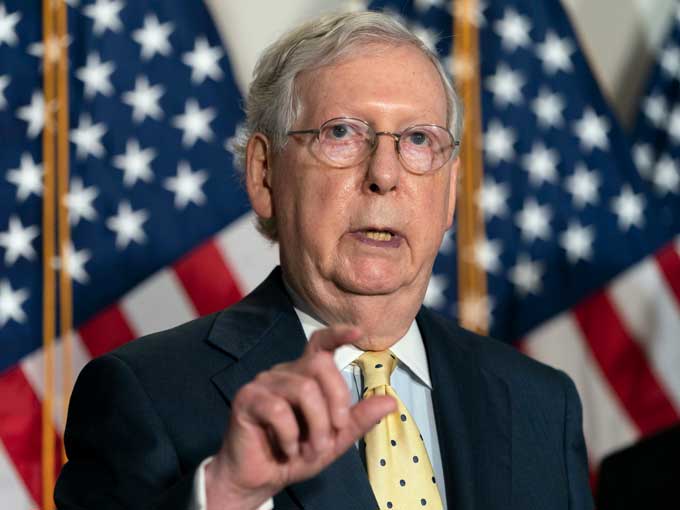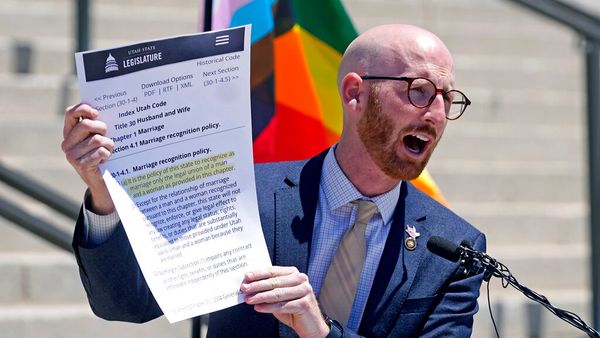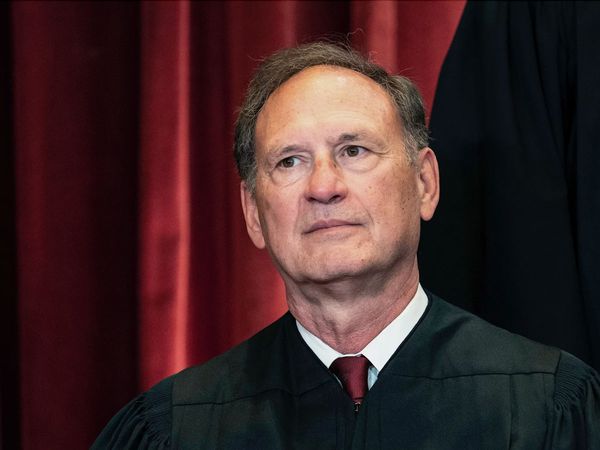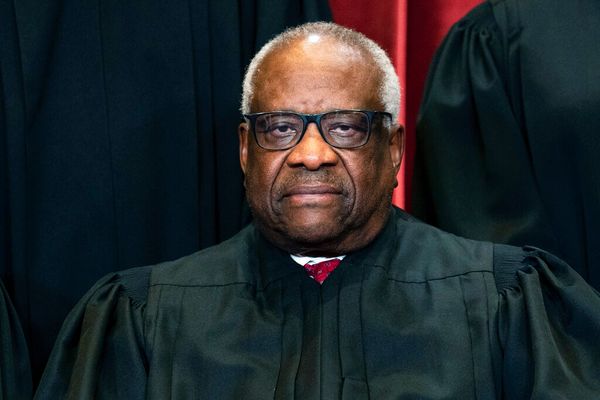
July 21, 2022
Where Do Senate Republicans Stand on Protecting Marriage Equality?
Kilian Melloy READ TIME: 3 MIN.
CNN took a poll of all 50 Senate Republicans to get a sense of how much support the evenly-divided chamber has for a bill that would enshrine marriage protections for same-sex and interracial couples, and act as a defense against a conservative-majority Supreme Court that has already demonstrated its willingness to dispense with rights and protections that had previously been considered law.
Senate Majority Leader Chuck Schumer has announced that he intends to see such a bill – the Senate's version of The Respect for Marriage Act, which has already been approved by the House of Representatives – come to the Senate floor for a vote, the Associated Press reported.
By and large, the results of CNN's survey were unsurprising, with nearly half of Republican senators – 22 in all – not bothering to respond to the query and many of the others, including Senate Minority Leader Mitch McConnell, refusing to say in advance the bill's introduction how they might vote.
Several Senators who declined to commit their support resorted to the rationale that the Supreme Court has already settled the question of marriage equality with its 2015 ruling that ushered in federal marriage equality in all 50 states. Among them was Sen. Mitt Romney of Utah (who, as governor of Massachusetts in 2004 when marriage equality was first legalized in that state, sought to prevent legal same-sex marriages from happening). Florida's Rick Scott also offered the same argument, as did South Dakota's John Thune.
That line of reasoning, however, ignores the precedent the Court made in overturning Roe v. Wade, as well as clear signals from justices Clarence Thomas and Samuel Alito that they would welcome the chance to revisit, and reverse, the Court's 2015 ruling.
Overall, support from the chamber's GOP members appeared anemic.
"Four Republican senators, so far, have either said they will support or will likely support the House-passed same-sex marriage bill, and that includes: Rob Portman of Ohio, Susan Collins of Maine, Lisa Murkowski of Alaska (likely) and Thom Tillis of North Carolina (likely)," CNN detailed.
Twice as many – eight in all – declared they would, or likely would, oppose the bill. Again, there were few surprises, with the naysayers including well-known anti-LGBTQ+ lawmakers like South Carolina's Lindsey Graham, Florida's Marco Rubio, Missouri's Josh Hawley, Oklahoma's Jim Inhofe, and Texas senators Ted Cruz and John Cornyn.
Cruz, who told CNN "I doubt it" when asked about the measure, also recently expressed the view on his podcast that the Supreme Court would respect settled law when it comes to marriage equality.
Some of the senators indicating they would not support the Respect for Marriage Act made a point to express their contempt for the bill. Rubio called it a "stupid waste of time," while Graham said he would "support the Defense of Marriage Act" – the 1996 law, signed by Bill Clinton, that sought to reserve marriage as a special right for heterosexual couples. That law was rendered moot by the Supreme Court's 2015 ruling.
The U.S. House of Representatives' approval of the Respect for Marriage Act was achieved with a wide margin and bipartisan support, but that chamber's approval is no bellwether for predicting how such legislation would fare in the Senate.
While the majority party in the House is Democratic, the U.S. Senate's membership is divided 50-50, with any tie-breaking votes being decided by Vice President Kamala Harris. Moreover, a single senator could initiate a filibuster, requiring a 60-40 Senate majority to pass contested legislation.
That means that the Respect for Marriage Act would most likely need the support of at least 60 senators to pass – all the chamber's Democrats, plus at least 10 Republicans. 11 Republicans would be needed if a Democrat such as Sen. Joe Manchin of West Virginia, who has single-handedly stymied some of the Biden administration's most ambitious legislative efforts, were to vote against the measure.
Though at this point it's uncertain "how many Republicans will support the bill," CNN reported, "GOP and Democratic senators said Wednesday they expect it could eventually win the 60 votes needed."
Kilian Melloy serves as EDGE Media Network's Associate Arts Editor and Staff Contributor. His professional memberships include the National Lesbian & Gay Journalists Association, the Boston Online Film Critics Association, The Gay and Lesbian Entertainment Critics Association, and the Boston Theater Critics Association's Elliot Norton Awards Committee.







